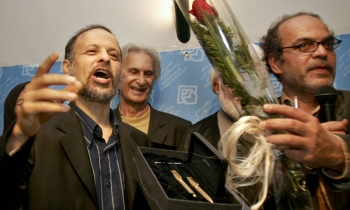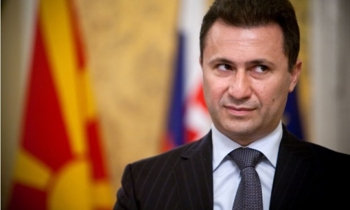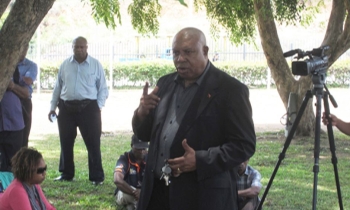At a discussion Friday on whether the Indian news media is experiencing a creeping rot or not, some of India’s most influential journalists—including the editors of the two weekly magazines that published the transcripts of phone taps that have prompted this soul searching—weighed in.
“I think Outlook and Open have made a mistake,” said Shoma Chaudhury, managing editor of investigative journalism magazine Tehelka, noting that the tapes end abruptly or seem to be missing bits of the conversations, a point she also made in a piece on media ethics this week. “Someone has carefully edited the tapes…who is doing this?”
The transcripts the magazines published were of conversations between a corporate lobbyist and influential Indian journalists, as well as other people.
Open magazine editor Manu Joseph defended the move to publish (and to do so without first seeking comment from the people on the tapes) at the gathering and in an e-mail exchange with India Real Time, as did Outlook editor Krishna Prasad.
“As a matter of public record, these CDs are there,” said Mr. Krishna.
The recordings had been submitted to the Supreme Court as part of its hearings on problems with the allocation of second generation spectrum to phone companies in 2008 by the time the two magazines published their stories.
A government watchdog has submitted a report on the allocation, saying it was mismanaged and could have cost the government as much as $40 billion in lost potential revenue. Telecom minister A. Raja resigned this month under pressure over the issue although he maintains his innocence.
Ms. Radia also has close ties to the political party that Mr. Raja belongs to and many of the phone taps are from the period when the government was forming a new Cabinet in 2009, that eventually included Mr. Raja.
Sunil Jain, of the Financial Express business daily, seemed somewhat sympathetic to journalists like NDTV’s Barkha Dutt and Hindustan Times columnist Vir Sanghvi, who have been widely criticized for how they come across in the recordings.
“The thing about these tapes is all of us—I can tell you about myself—we do talk to people in a certain way to get information. Very often you’re supposed to look sympathetic to their point of view,” he said.
Meanwhile CNN-IBN’s national bureau chief questioned why people were getting worked up over the notion that journalists have influence over Cabinet appointments or bartered access to the country’s top leaders for scoops.
“Anyone who believes that there is any journalist who can influence the policy-making of the Congress Party doesn’t understand the Congress Party,” said Bhupendra Chaubey, scoffing at the idea that a journalist could set up a meeting with Congress Party chief Sonia Gandhi at will.
B.G. Verghese, a political commentator who was once a journalist, said attempts to soften the media have long existed, though in pre-1991 reforms India the bigger threat was from the government.
During the heyday of the “License Raj,” help with a gas or phone connection were among the inducements the government could rely on, he said.
“This has been a continuous process,” said Mr. Verghese. “With the disappearance of the License Raj there’s been a huge boom in the corporate world and stock markets…and you’ve got these corporations trying to court the media.”
Over lunch afterward, Open Magazine’s political editor Hartosh Singh Bal said he wasn’t only exercised over what sounded like offers by journalists to set up meetings with politicians, but by the fact that he doesn’t recall seeing news stories at the time by their media outlets about the behind-the-scenes lobbying taking place by a woman who was working on behalf of some of India’s top industrialists, a point he expands on in the magazine.
Later, another investigative journalist, Cobrapost.com editor Aniruddha Bahal, stopped for a quick chat on the norms of fair comment in India and when and whether the subject of an article should be given the opportunity to weigh in versus the possibility that alerting the subject could jeopardize the story. Mr. Bahal said “pliant” judges can sometimes be prevailed upon to put a stay on a story much quicker than might happen elsewhere. He also added that in general Indian journalists have to worry more about interference from publishers, who may have other business interests that may make them more likely to interfere with editorial processes.
“It’s fine 95% of the time” to strictly follow the rules, said Mr. Bahal, who was part of India’s first (and best known) undercover media exposé on corruption in government arms procurement almost a decade ago, for Tehelka, and is also a founder of the Foundation for Media Professionals, which organized Friday’s event at New Delhi’s India International Center.
But some of the time in India, you can’t play by the book, he suggested.









